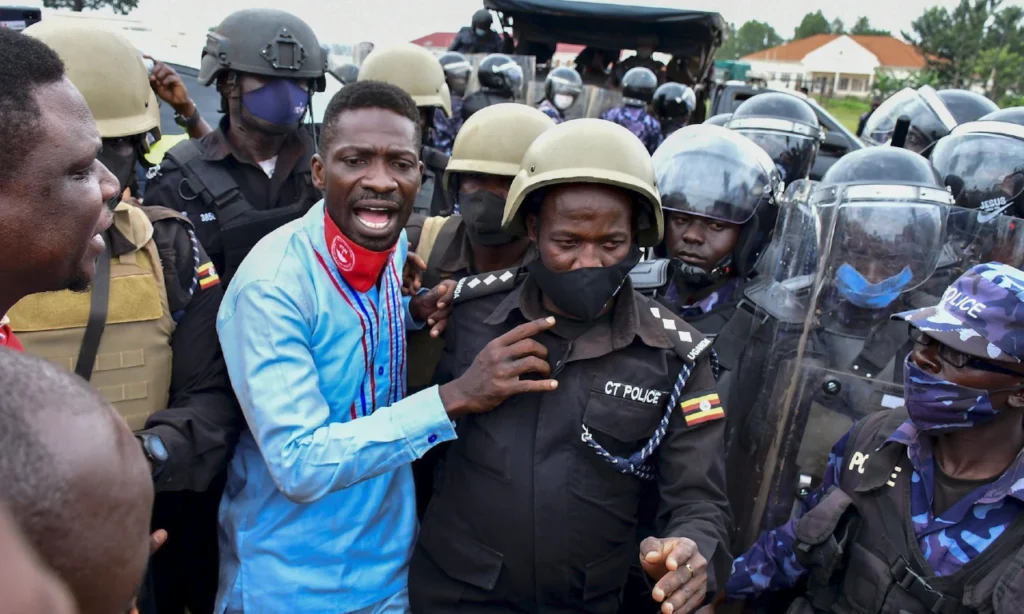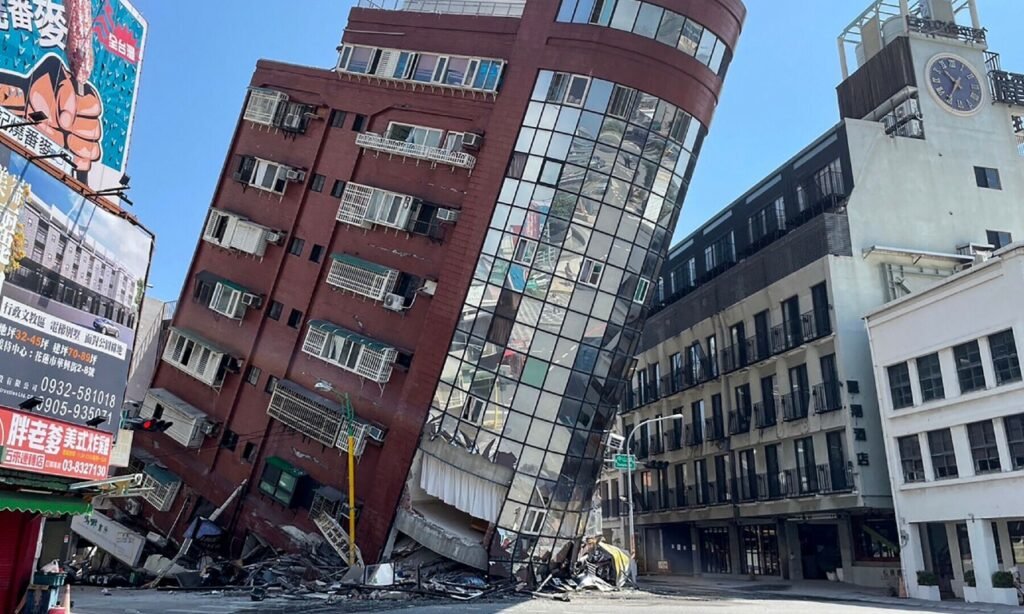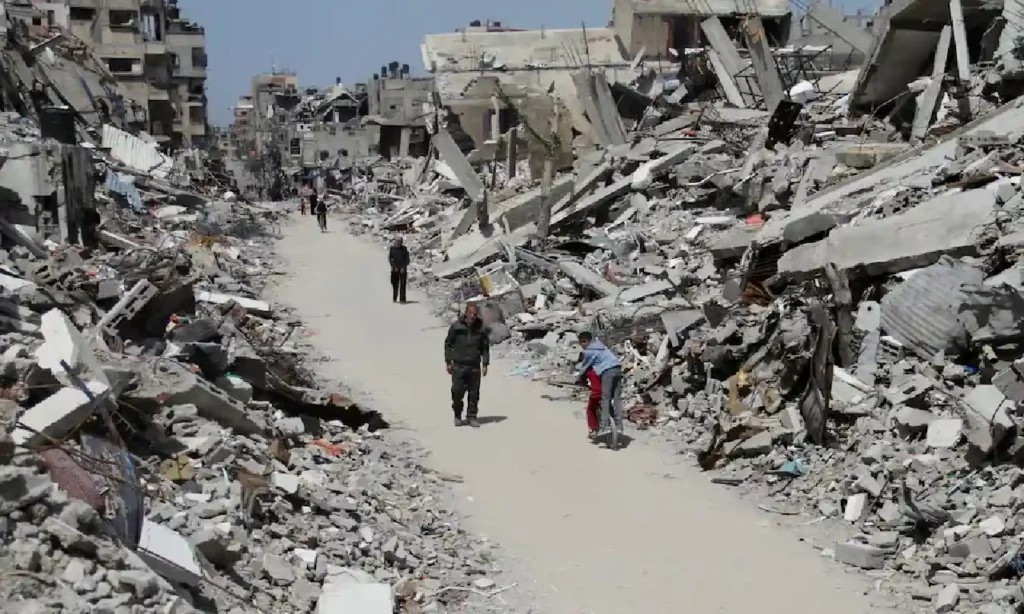Security Forces Surround Opposition Headquarters
Ugandan GVT Cracks Down on Opposition Ahead of Protests: Uganda’s main opposition leader, Bobi Wine, has reported that security forces in Kampala have surrounded his party’s headquarters. This action occurred on the eve of an anti-government demonstration, highlighting the tension between the government and opposition. According to Wine, soldiers and police have transformed the National Unity Platform (NUP) offices into “a military barracks” and have “violently arrested” several party officials.
Government’s Precautionary Measures
While police have not confirmed these arrests, they claimed to have taken “precautionary steps” to prevent the “mobilisation for the protest.” President Yoweri Museveni warned that the organizers of the planned march to parliament were “playing with fire.” This statement underscores the government’s stern stance against the protest.
Online Mobilization and Inspiration from Kenya
Young Ugandans have been mobilizing online to demand an end to corruption and bad governance, inspired in part by recent protests in Kenya. These protests in Kenya led to the president abandoning plans to increase taxes, demonstrating the power of organized civic action. The Ugandan government is evidently concerned about a similar uprising in their own country.
Bobi Wine’s Response to Accusations
Bobi Wine, formerly a music star named Robert Kyagulanyi, denied that the NUP was organizing the protest but expressed support for efforts to oppose injustice, corruption, and misrule. On social media platform X, he accused the security forces of being “cowards” and blocking roads leading to the NUP offices. His comments reflect the growing frustration among opposition leaders and their supporters.
Police Justification and Public Reaction
Police spokesperson Kituuma Rusoke told AFP that the NUP’s “activities raised a red flag, and we took precautionary measures.” This justification has not quelled public concern, with many viewing the government’s actions as an attempt to stifle legitimate political dissent. The crackdown has drawn widespread criticism from human rights organizations and international observers.
Bobi Wine’s Political Journey
Bobi Wine remains the strongest challenger to President Museveni, who has held office for nearly 40 years. Popular among young people, Wine has been arrested multiple times and first entered parliament in 2017. He ran against Museveni in the 2021 election, which was marred by state repression, and continues to be a vocal critic of the government’s policies.
Regional Unrest and Solidarity
Meanwhile, in Kenya, protesters have threatened to occupy Nairobi’s main international airport on Tuesday, demanding President William Ruto’s resignation and justice for victims of police brutality. Since the demonstrations began on June 18, at least 50 people have been killed and 413 injured, according to the Kenya National Commission on Human Rights. Protesters stormed parliament on June 25, setting part of it on fire and stealing the mace.
Kenyan President’s Response
On Sunday, President Ruto stated that protest organizers should not remain anonymous and must “step forward and tell us what is this violence going to achieve.” He declared, “Enough is enough.” Kenya’s main opposition leader, Raila Odinga, expressed solidarity with the protesters, emphasizing that justice for victims was necessary before any talks with the government could take place. Odinga’s stance may undermine Ruto’s attempt to include opposition members in his cabinet, a strategy aimed at ending the youth-led protests.
Conclusion: A Nation at a Crossroads
The Ugandan government cracks down on opposition ahead of protests, reflecting deep-seated political tensions and a volatile atmosphere. The actions of the security forces and the government’s harsh rhetoric have escalated the situation, drawing comparisons with regional unrest in neighboring countries. As young Ugandans mobilize for change, the government’s response will be crucial in shaping the nation’s political future. The crackdown on opposition figures like Bobi Wine highlights the ongoing struggle for democratic freedoms and the challenges facing Uganda’s political landscape.




